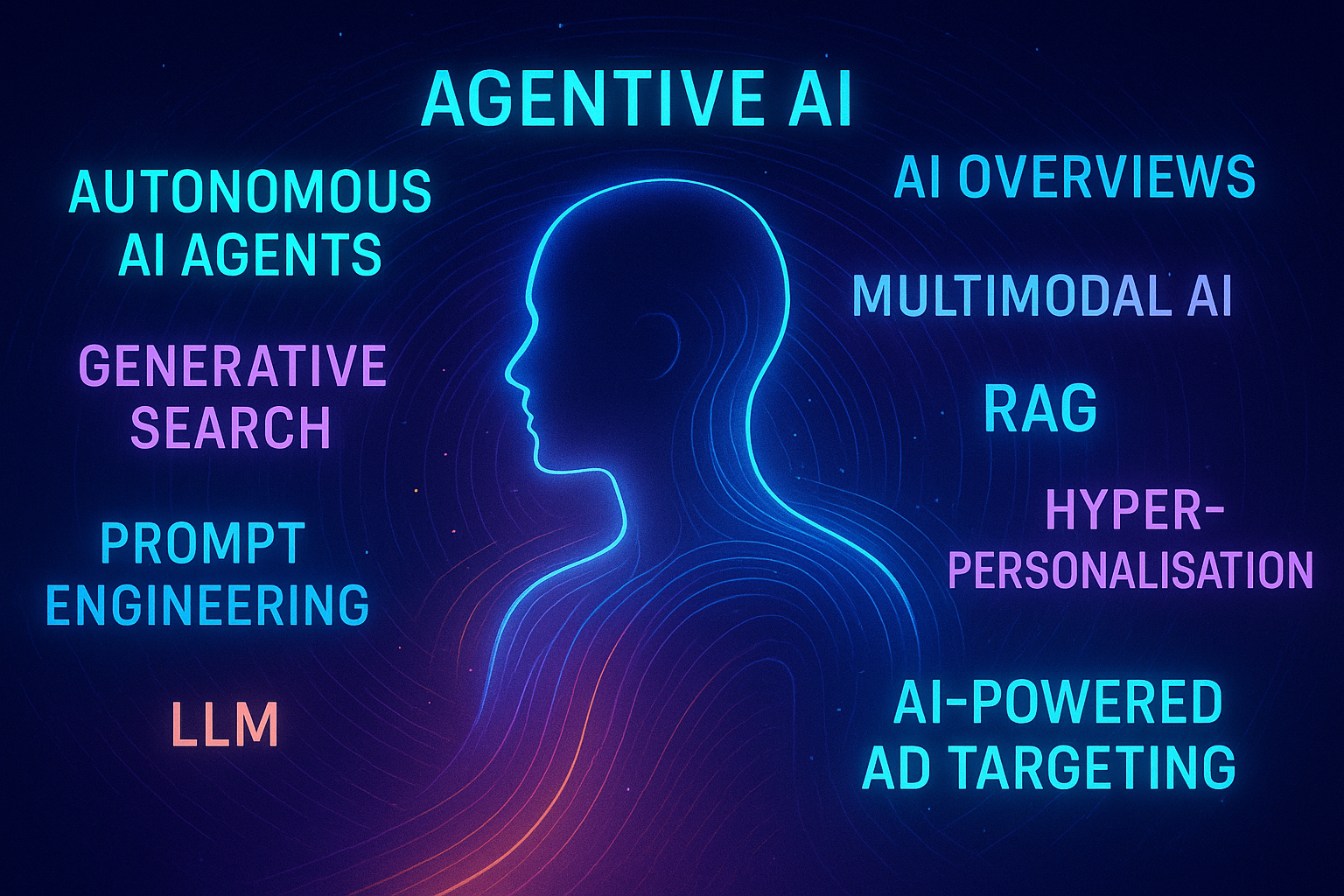How To Appear in AI Results | H10 Marketing
How To Appear in AI Results
Appearing in AI search results requires a strategic shift from traditional Search Engine Optimisation (SEO) to a more holistic approach known as Generative Engine Optimisation (GEO). This involves creating high-quality, well-structured, and factual content that directly answers your audience's questions. Building a strong online brand presence through positive reviews, digital PR, and mentions on reputable websites is also crucial. Furthermore, technical optimisations such as schema markup and ensuring your website is easily crawlable by AI bots will significantly increase your chances of being featured in AI-generated answers and summaries.
The digital landscape is undergoing a seismic shift. For years, businesses have focused their efforts on SEO, striving to climb the ranks of Google's search results. However, the rise of generative AI and Large Language Models (LLMs) like ChatGPT, Gemini, and Claude is ushering in a new era of search. This new paradigm requires a fundamental change in how we approach online visibility. It's no longer just about keywords and backlinks; it's about becoming a trusted source of information that AI engines can confidently cite and recommend. This is the essence of Generative Engine Optimisation (GEO), a strategy designed to ensure your business doesn't just survive but thrives in the age of AI-powered search.
The core of GEO lies in the quality and structure of your content. AI engines are designed to understand and process information in a way that mimics human comprehension. Therefore, your content needs to be authoritative, well-researched, and factual. Vague, generic content will be overlooked in favour of specific, detailed information that provides direct and comprehensive answers to user queries. Think of your website as a repository of expertise. Every page, blog post, and product description should be crafted to demonstrate your deep understanding of your industry. This is particularly important in sensitive fields like healthcare and finance, where LLMs prioritise information from demonstrably expert sources.
Beyond the content itself, building a robust online brand presence is paramount. AI engines don't just analyse your website; they scan the entire digital ecosystem to gauge your brand's authority and trustworthiness. This means that your online reputation matters more than ever. Encourage satisfied customers to leave positive reviews on platforms like Google, Yelp, and Trustpilot. Actively engage in digital public relations to secure brand mentions and features on reputable news sites, blogs, and industry publications. Every positive mention of your brand online acts as a vote of confidence in the eyes of AI, increasing the likelihood of your business being recommended in AI-generated responses.
From a technical standpoint, there are several steps you can take to optimise your website for AI. Implementing schema markup, a form of structured data, helps AI engines understand the context of your content, making it easier for them to extract and display relevant information. Ensuring that your website's
robots.txt
file allows AI crawlers like Google's
Google-Extended
and OpenAI's
GPTBot
to access your content is also a critical step. Furthermore, a logical internal linking structure helps AI understand the relationships between different topics on your website, reinforcing your topical authority. By combining high-quality content, a strong brand presence, and technical optimisation, you can position your business to be a prominent voice in the new conversational landscape of AI-powered search. This proactive approach to GEO will not only enhance your visibility in AI results but also strengthen your traditional SEO efforts, leading to sustained growth and a competitive edge in the evolving digital marketplace.
What is the difference between SEO and Generative Engine Optimisation (GEO)?
The primary difference between traditional Search Engine Optimisation (SEO) and the emerging field of Generative Engine Optimisation (GEO) lies in their core focus and the nature of the search experience they aim to influence. SEO, as we've known it for the past two decades, is centred on optimising websites to rank highly in the list of blue links on a search engine results page (SERP). It involves a range of tactics, including keyword research, on-page optimisation, link building, and technical SEO, all designed to signal to search engines like Google that a particular webpage is a relevant and authoritative answer to a user's query. The ultimate goal of SEO is to drive organic traffic to a website by achieving the highest possible ranking.
Generative Engine Optimisation (GEO), on the other hand, is a more recent and evolved strategy that focuses on making a brand, its products, and its services visible within the AI-generated answers and conversational responses of Large Language Models (LLMs) like ChatGPT, Google's AI Overviews, and Microsoft's Copilot. Unlike traditional search, which presents a list of options for the user to explore, generative AI often provides a single, synthesized answer. Therefore, the goal of GEO is not just to rank, but to be the source of truth that the AI uses to construct its response. This requires a deeper focus on creating high-quality, factual, and well-structured content that directly answers specific questions. It also places a much greater emphasis on building a strong and trusted brand presence across the entire web, as AI models are programmed to prioritise information from sources that are widely recognised as authoritative and reliable. While many traditional SEO principles are still relevant to GEO, the shift is from optimising for clicks to optimising for mentions and recommendations within an AI-driven conversational context.
How can I optimise my website to appear in Google's AI Overviews?
Optimising your website to appear in Google's AI Overviews requires a multi-faceted approach that builds upon the foundations of good SEO while adapting to the specific demands of generative AI. First and foremost, focus on creating exceptionally high-quality, authoritative content. AI Overviews are designed to provide users with quick, reliable summaries, so your content needs to be well-researched, factually accurate, and written in a clear, concise manner. Use structured data, such as schema markup, to explicitly define the information on your pages. For example, use FAQPage schema for question-and-answer sections, HowTo schema for tutorials, and Product schema for e-commerce pages. This makes it easier for Google's AI to parse and understand your content.
Another crucial factor is topical authority. Demonstrate your expertise by covering a subject in depth, with multiple interconnected articles and pages. Use a logical internal linking structure to help Google understand the relationship between your content and establish your site as a comprehensive resource. Pay close attention to your online brand presence. Google's AI is more likely to cite sources it deems trustworthy, so actively manage your online reputation by encouraging customer reviews and seeking out brand mentions on reputable websites. Technically, ensure your website is mobile-friendly and has a fast loading speed, as user experience remains a key ranking factor. While there's no guaranteed formula for appearing in AI Overviews, a combination of high-quality content, technical SEO, and a strong brand reputation will significantly increase your chances of being featured.
What is the future of search with the rise of generative AI?
The future of search, propelled by the rapid advancements in generative AI, is poised to become more conversational, personalised, and multi-modal. We are moving away from the traditional keyword-based queries and lists of blue links towards a more interactive and intuitive search experience. Users will increasingly engage with search engines in a more natural, conversational manner, asking complex questions and receiving direct, synthesized answers. This shift is already evident with the introduction of features like Google's AI Overviews, which aim to provide immediate, comprehensive responses at the top of the search results page. This will likely lead to a decline in "zero-click searches" for informational queries, as users will get the information they need without having to visit a specific website.
The rise of multi-modal search will also redefine how we interact with search engines. Users will be able to search using a combination of text, images, and voice, and receive results in a variety of formats, including text, images, videos, and audio. For example, you could take a picture of a plant and ask a search engine to identify it and provide care instructions. This will necessitate a more holistic approach to content creation, where businesses will need to produce a diverse range of engaging and informative content across multiple formats. Furthermore, search is set to become even more personalised, with AI tailoring results to individual users based on their past search history, location, and other contextual cues. This will create new opportunities for businesses to connect with their target audience in a more meaningful and relevant way. While the transition will present challenges, the future of search promises a more intelligent, intuitive, and helpful experience for users, and a more dynamic and engaging landscape for businesses to navigate.
How should I adapt my keyword research for AI-powered search engines?
Adapting your keyword research for AI-powered search engines requires a shift in focus from short, fragmented keywords to more natural, conversational, and long-tail phrases. In the era of generative AI, users are more likely to pose questions to search engines in the same way they would ask a person. Therefore, your keyword strategy should be geared towards understanding and answering these questions directly. Instead of targeting a broad keyword like "SEO," you should focus on more specific, long-tail queries such as "how to optimise my website for voice search" or "what is the difference between SEO and GEO."
Tools like AnswerThePublic, AlsoAsked, and Google's "People also ask" feature are invaluable for identifying the specific questions your target audience is asking. You should also pay close attention to the language used in online forums, social media, and customer reviews to gain insights into the natural language your audience uses to describe their problems and needs. Furthermore, your keyword research should be informed by the concept of search intent. Are users looking for information, a specific product, or a comparison of different options? By understanding the intent behind a search query, you can create content that provides a more relevant and satisfying answer. While traditional keyword research tools still have their place, the emphasis should be on discovering and targeting the conversational queries that are most likely to trigger an AI-generated response. By aligning your keyword strategy with the natural language of your audience, you can create content that is not only optimised for AI but also resonates more deeply with your human readers.
What are the best practices for optimising my website for voice search?
Optimising your website for voice search is becoming increasingly important as more people turn to virtual assistants like Siri, Alexa, and Google Assistant to find information. The key to voice search optimisation is to focus on natural, conversational language. People using voice search tend to speak in full sentences and ask questions, so your content should be written in a way that mirrors natural speech. One of the most effective strategies is to create FAQ pages that directly answer the common questions your audience might ask. Use long-tail keywords and question-based phrases throughout your content to align with the conversational nature of voice queries.
Local SEO is another critical component of voice search optimisation, as many voice searches have a local intent (e.g., "find a coffee shop near me"). Ensure your Google Business Profile is fully optimised with accurate information about your business name, address, phone number, and opening hours. Encourage customer reviews, as these can also be surfaced in voice search results. Page speed is also a crucial factor, as voice search users expect quick, immediate answers. Use Google's PageSpeed Insights to test your website's loading times and make any necessary improvements. Finally, implementing structured data, particularly FAQPage and HowTo schema, can help search engines understand the content of your pages and serve it up as a direct answer to a voice query. By focusing on conversational content, local SEO, page speed, and structured data, you can significantly improve your website's visibility in the rapidly growing landscape of voice search.














